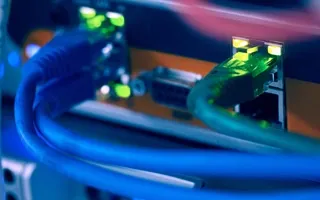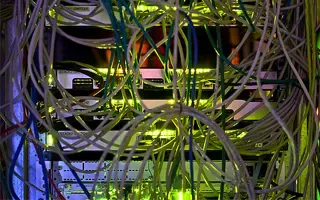Network Fundamentals: Top Picks
Network Fundamentals
Power over Ethernet - Understanding PoE Technolog…
Power over Ethernet (PoE) was invented by PowerDsine back in 1997 and the first power injector (Midspan) was installed in 1998! Many manufacturespart…
Network Fundamentals
Introduction to Content Switching - Application &…
Content switches (also sometimes called application switches) is a class of network device that is becoming increasingly common in medium to large si…
Network Fundamentals
Network Unicast - Its role and Importance
Unicast is a communication method used in computer networking where data is sent from a single sender to a specific destination device. In this…
Network Fundamentals
Controlling Broadcasts and Multicasts
The first step in controlling broadcast and multicast traffic is to identify which devices are involved in a broadcast or multicast storm. The follow…
Featured Subcategories:
Netflow Articles:
Netflow
Complete Guide to Netflow: How Netflow & its Comp…
This article will cover the basics of Netflow, including its use cases, Netflow supported devices, Netflow history, and variants. We’ll also dive int…
Netflow
Netflow: Monitor Bandwidth & Network Utilization…
Monitoring network traffic & bandwidth usage via Netflow is mandatory for any type and size network. Gaining visibility into user traffic, applic…
Netflow
Netflow vs SNMP. Two Different Approaches to Netw…
SNMP (Simple Network Management Protocol) and Netflow are both popular protocols with admins, prized for their ability to give visibility over the ne…
Netflow
NetFlow Analyzer: Free Download, Step-by-Step Ins…
In our previous article we explained how a Netflow Analyzer can help you gain visibility into your user traffic, application traffic and data flows w…
Network Protocols:
Subnetting
IP Subnetting - Part 1: The Basic Concepts
When we subnet a network, we basically split it into smaller networks. For example, when a set of IP Addresses is given to a company, e.g 254 they mi…
TCP - UDP Protocol Analysis
TCP Header Anaylsis - Section 3: TCP Header Lengt…
The third field under close examination is the TCP Header length. There really isn't that much to say about the Header length other than to explain w…
TCP - UDP Protocol Analysis
Transmission Control Protocol - Part 1: Introduct…
Understanding how each protocol fits into the OSI Model is essential for any network engineer. This page analyses how TCP is classified as a 'transpo…
TCP - UDP Protocol Analysis
TCP Header Anaylsis - Section 2: TCP Sequence & A…
This page will closely examine the Sequence and Acknowledgement numbers. The very purpose of their existence is related directly to the fact that the…
Domain Name System (DNS)
The DNS Protocol - Part 1: Introduction
If you ever wondered where DNS came from, this is your chance to find out ! The quick summary on DNS's history will also help you understand why DNS…
TCP - UDP Protocol Analysis
TCP Header Anaylsis - Section 6: TCP Options
The TCP Options (MSS, Window Scaling, Selective Acknowledgements, Timestamps, Nop) are located at the end of the TCP Header which is also why they ar…
Supernetting & CIDR
Supernetting In-Depth Analysis - Learn to Identif…
Our previous article served as an introduction to Supernetting, also known as Route Summarization. We covered the concept of Supernetting, how it wor…
Subnetting
IP Subnetting - Part 2: Subnet Masks & Their Effe…
There are a few different ways to approach subnetting and it can get confusing because of the complexity of some subnets and the flexibility they off…
STP/ICMP Protocols:
ICMP Protocol
ICMP Protocol - Part 6: Redirect Messages
The ICMP - Redirect Message is always sent from a gateway to the host and the example below will illustrate when this is used.
Putting it simply (be…
ICMP Protocol
ICMP Protocol - Part 7: Time Exceeded Message Ana…
The ICMP - Time Exceeded message is one which is usually created by gateways or routers. In order to fully understand this ICMP message, you must be…
ICMP Protocol
ICMP Protocol - Part 2: Echo / Echo Reply (Ping)…
As mentioned in the previous page, an Echo is simply what we networking engineers call a 'ping'. The Echo Reply is, as most would guess, the 'p…
ICMP Protocol
ICMP Protocol - Part 5: Source Quench Message Ana…
The ICMP - Source Quench message is one that can be generated by either a gateway or host. You won't see any such message pop up on your workstation…
Wi-Fi Key Generator
Follow Firewall.cx
Cisco Password Crack
Decrypt Cisco Type-7 Passwords on the fly!
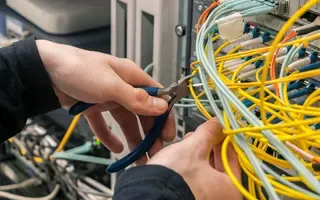
VLAN Networks
VTP Pruning
VTP (VLAN Trunking Protocol) pruning is a feature that is used in Cisco switches to reduce unnecessary traffic in VLAN (Virtual Local Area Network) trunks…
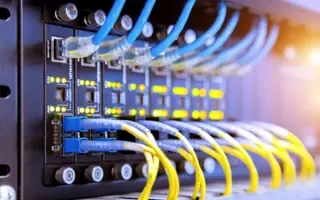
VLAN Networks
VLANs - Access & Trunk Links
If you've read our previous article The VLAN Concept - Introduction to VLANs then you should feel comfortable with terms such as 'VLAN', 'Stati…
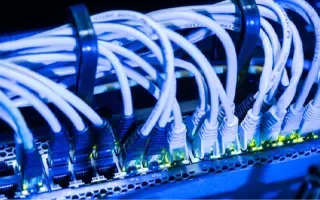
VLAN Networks
Dynamic VLANs
Dynamic VLANs were introduced to grant the flexibility and complexity(!) that Static VLANs did not provide. Dynamic VLANs are quite rare because of their…
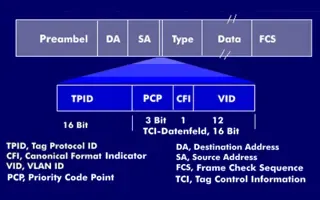
VLAN Networks
VLAN Tagging - Understanding VLANs Ethernet Frames
We mentioned that Trunk Links are designed to pass frames (packets) from all VLANs, allowing us to connect multiple switches together and independently co…
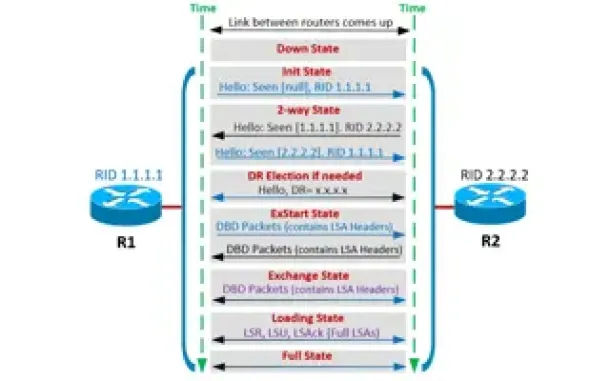
Routing
OSPF - Part 4: OSPF Neighbor States – OSPF Neighbor Fo…
This is the third article of our OSPF series which analyzes the different OSPF States routers go through during the OSPF discovery and neighbor forming pr…
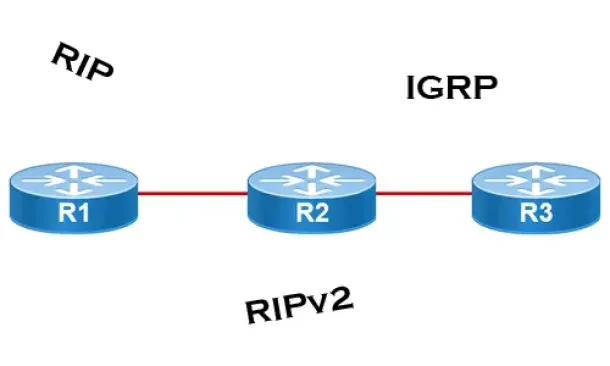
Routing
Distance Vector Routing Protocols
Distance Vector routing protocols use frequent broadcasts (255.255.255.255 or FF:FF:FF:FF) of their entire routing table every 30 sec. on all their interf…
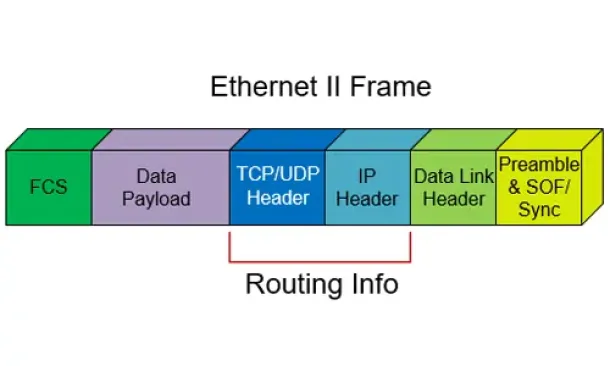
Routing
Routed Protocols
We all understand that TCP/IP, IPX-SPX are protocols which are used in a Local Area Network (LAN) so computers can communicate between with each other and…
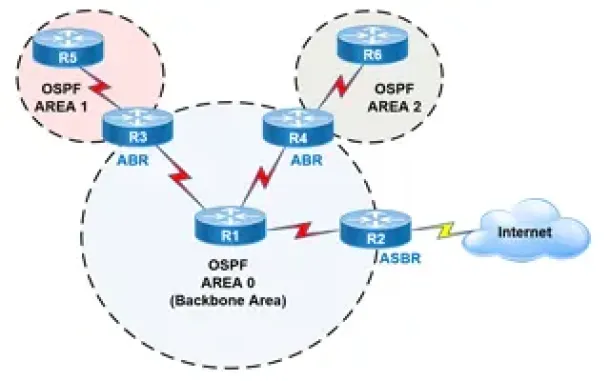
Routing
OSPF - Part 2: How OSPF Protocol Works & Basic Concept…
This article covers basic OSPF concepts and operation. We explain how OSPF works, how OSPF tables are built on an OSPF-enabled router and their purpose (N…
Network Address Translation - NAT
Network Address Translation (NAT) Overload - Part 2
In our previous article, Network Address Translation (NAT) Overload - Part 1, we explained what NAT Overload is and how it works. This page deals with the…
Network Address Translation - NAT
Static NAT - Part 1
Static NAT (also called inbound mapping) is the first mode we're going to talk about and also happens to be the most uncommon between smaller networks.
S…
Network Address Translation - NAT
Dynamic NAT - Part 1
Dynamic NAT is the second NAT mode we're going to talk about. Dynamic NAT, like Static NAT, is not that common in smaller networks but you'll find it used…
Network Address Translation - NAT
Static NAT - Part 2
The previous page (Static NAT - Part 1) helped us understand what exactly happens with Static NAT and how it works, and we saw a few examples of how to us…







